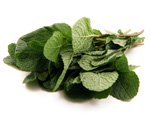|
What are the pros and cons of organic foods?
The use of organic foods is a subject of much controversy these days. Opinions vary as to the pros and cons of using this form of nutrition. Are you as confused about this issue as most people out there? Firstly, what is organic food? The best way to describe it would be: Crops produced and animals fed with natural food and without the use of chemical additives. So then, let's try to make sense of all the different possible pros and cons of organic foods: Starting at the negative side: 1. Is organic food really so much healthier than conventionally grown food? Mere common sense will bring to light the fact that fresh produce grown without pesticides MUST be more healthy than those grown with the use of these substances. 2. Is organic food not way too expensive to incorporate into a normal diet and budget? One can assume that growing produce without pesticides must be more labour-intensive, which will then increase the costs to grow the crops. But for health's sake, the raised costs will not equal your medical bills if your lifestyle is not healthy! 3. Is the organic food issue not a media hype subject with no scientific substance to back up the claims? Trying to live a more healthy life, which is becoming the trend amongst the general population will be reflected in the media, as a new way of living which can only be beneficial.
AND
# Because of financial benefit, producers of crops need to produce more and more to satisfy the growing demand, using up to 30 pesticides per crop type, e. g. apples.
# Eating more fresh fruit and vegetables are deemed to be healthy, but you are taking in a lot of chemicals at the same time.
# Cattle and poultry are force fed lots of anti-biotics and hormones - those chemicals are digested and stored by human bodies... If these animals are kept in cramped conditions and force fed, how can their meat be healthy for our human bodies?
# People are starting to turn to free range and organically fed meat more and more in our food outlets, which shows a growing awareness of the hazards of chemical additives.
# Our bodies will surely have negative reactions to these vile mixtures. Think cancer, Alzheimer's disease, and the list goes on and on.....
The distinct advantages of organic foods are therefore, amongst others: * Organic food contains 50% more nutrients, minerals and vitamins than produce that has been intensively farmed.
* Once you have tasted fruit and vegetables as they are supposed to taste, you will not want to revert to conventional produce ever again!
* Just imagine the vigour, energy and good health you will enjoy if you feed your body well...
* Think about "saving the environment". What a great way to contribute towards reducing our misuse of planet Earth. We can put fewer chemicals in the soil, cause less erosion of the countryside, and contribute to less pollution of our rivers and streams. We can see that the necessary insects, worms, etc. return to their natural habitat, while at the same time controlling natural pests. Let's be active in helping to revert back to having a balanced ecosystem.
Finally: Consider this information from the website of the Organic Traders Association: http://www.ota.com/organic/benefits/nutrition.html
Reviewing 41 published studies comparing the nutritional value of organically grown and conventionally grown fruits, vegetables, and grains, certified nutrition specialist Virginia Worthington concluded there were significantly more of several nutrients in organic crops. These included: 27% more vitamin C, 21.1% more iron, 29.3% more magnesium, and 13.6% more phosphorus. In addition, organic products had 15.1% less nitrates than their conventional counterparts. She also noted that five servings of organic vegetables (lettuce, spinach, carrots, potatoes and cabbage) provided the recommended daily intake of vitamin C for men and women, while their conventional counterparts did not. Worthington said the results are consistent with known soil dynamics and plant physiology. Source: “Nutritional Quality of Organic Versus Conventional Fruits, Vegetables, and Grains,” by Virginia Worthington, published in The Journal of Alternative and Complementary Medicine, Vol. 7, No. 2, 2001 (pp. 161-173). So, consider your verdict!
Return from this page to the Organic Foods page
|





